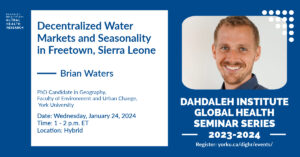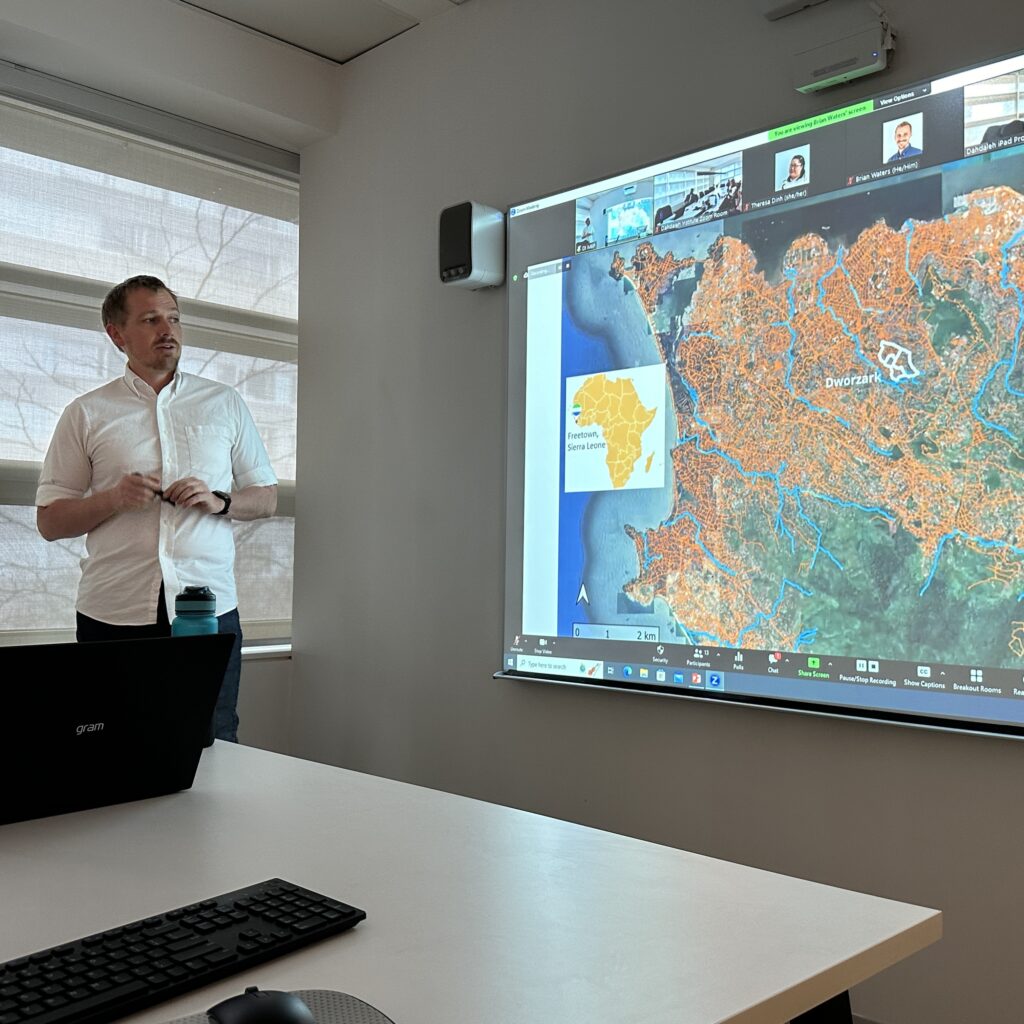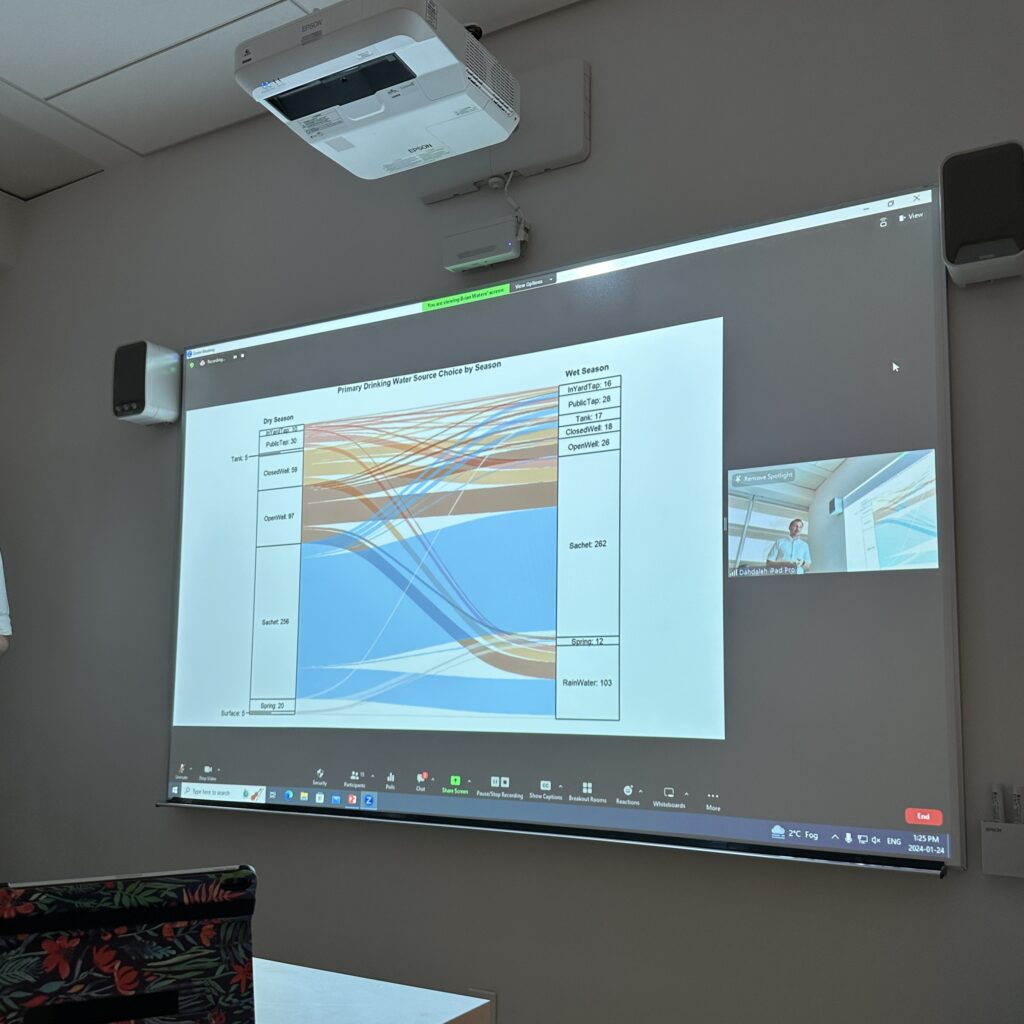Post
Published on March 7, 2024

On January 24, 2024, Brian Waters, a PhD Candidate in Geography at York University, shared his journey and findings from a study conducted in Freetown, Sierra Leone. Brian's inquiry was deeply inspired by the stark contrast between Freetown's water supply capacity and its growing population. His investigation was driven by a critical question: how can a city reported to have sufficient water for half a million people manage to serve its population of a million and a half? Particularly under the context of emerging threats of climate change exacerbating water scarcity. Brian highlighted the critical role of lived experiences in shaping water management strategies that are resilient, sustainable, and inclusive. His research pivoted on understanding how communities, already adept at navigating scarcity, could inform and enhance future water security projects.
His approach showed the importance of collaborative, interdisciplinary approaches from integrating local knowledge and innovations into broader water resource management frameworks. Central to Brian's findings was the revelation of Freetown's residents' diverse and adaptive water-sourcing strategies. His study uncovered the reliance on multiple water sources, including the significant yet costly role of sachet water—sealed bags of water recognized for their purity despite environmental concerns over plastic waste. Interestingly, Brian's investigation challenged common assumptions about rainwater harvesting, revealing prevalent health concerns linked to zinc contamination from metal roofs, which deterred its use as a potable source.
The presentation further delved into the socio-economic and gender dynamics surrounding water accessibility. Brian revealed that water source ownership and the burden of water collection fell along gender lines, with men owning the majority of water sources and women primarily responsible for water collection. This imbalance highlighted potential areas for intervention to address gender-based vulnerabilities and ensure equitable access to water. His presentation called for a nuanced understanding of the interplay between technical, social, and economic factors in water resource management.
Moving forward, Brian's research aims to dissect the impacts of ownership models and seasonality on water access, quality, and sustainability. Through this lens, he hopes to contribute to developing more resilient and equitable water management strategies grounded in the realities of those most affected by water insecurity.
Watch the seminar presentation below:
Connect with Brian Waters
Themes | Global Health & Humanitarianism |
Status | Active |
Related Work |
N/A
|
Updates |
N/A
|
People |
Brian Waters, Dahdaleh Global Health Graduate Scholar, Faculty of Environmental and Urban Change - Active
|
You may also be interested in...
Join Us This September for Our Global Health Research Seminar Series
We are kicking off the 2022-23 academic year at the Dahdaleh Institute with some wonderful global health research talks this September: disaster management, humanitarian response, occupational health, and planetary health. All events will be delivered in ...Read more about this Post
Dahdaleh Institute Researchers Awarded Major Funding from SSHRC
Congratulations to Dahdaleh Institute faculty fellow and PI Amrita Daftary and director and co-applicant James Orbinski, who received a 3-year Social Sciences & Humanities Research Council of Canada (SSHRC) Partnership Development Grant for "A Global ...Read more about this Post
Applications Open for the Humanitarian Water Engineering Online Intensive Course Fall 2024
The Humanitarian Water Engineering Intensive Online Course is a comprehensive 12-week program beginning in September 2024 with a specialized focus on safe water supply in humanitarian emergencies. The course will cover topics such as water ...Read more about this Post


